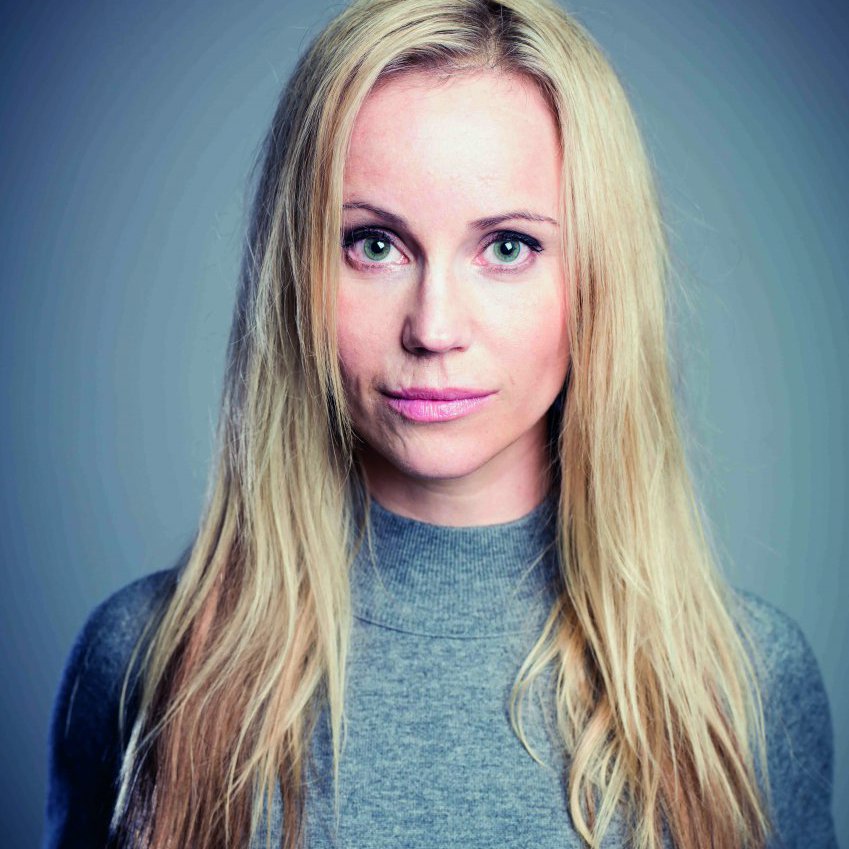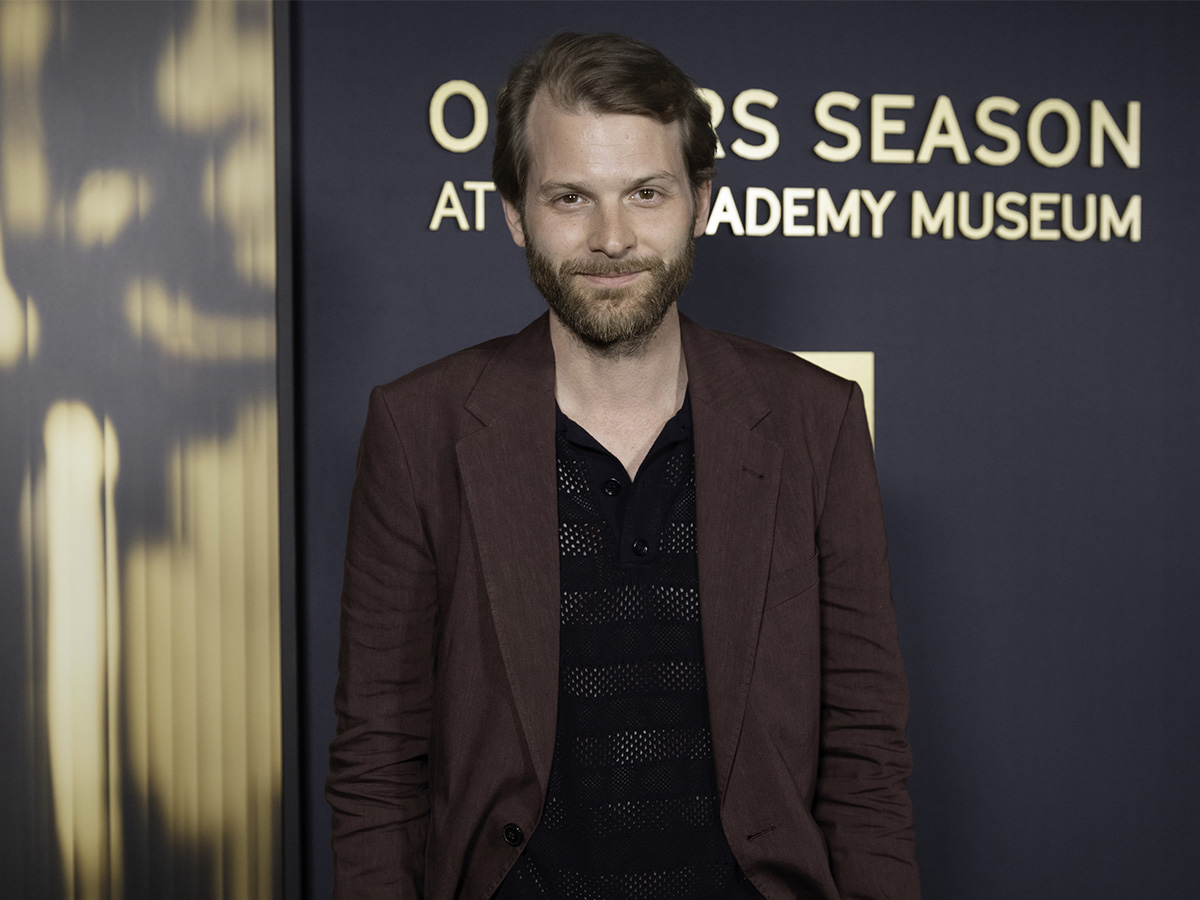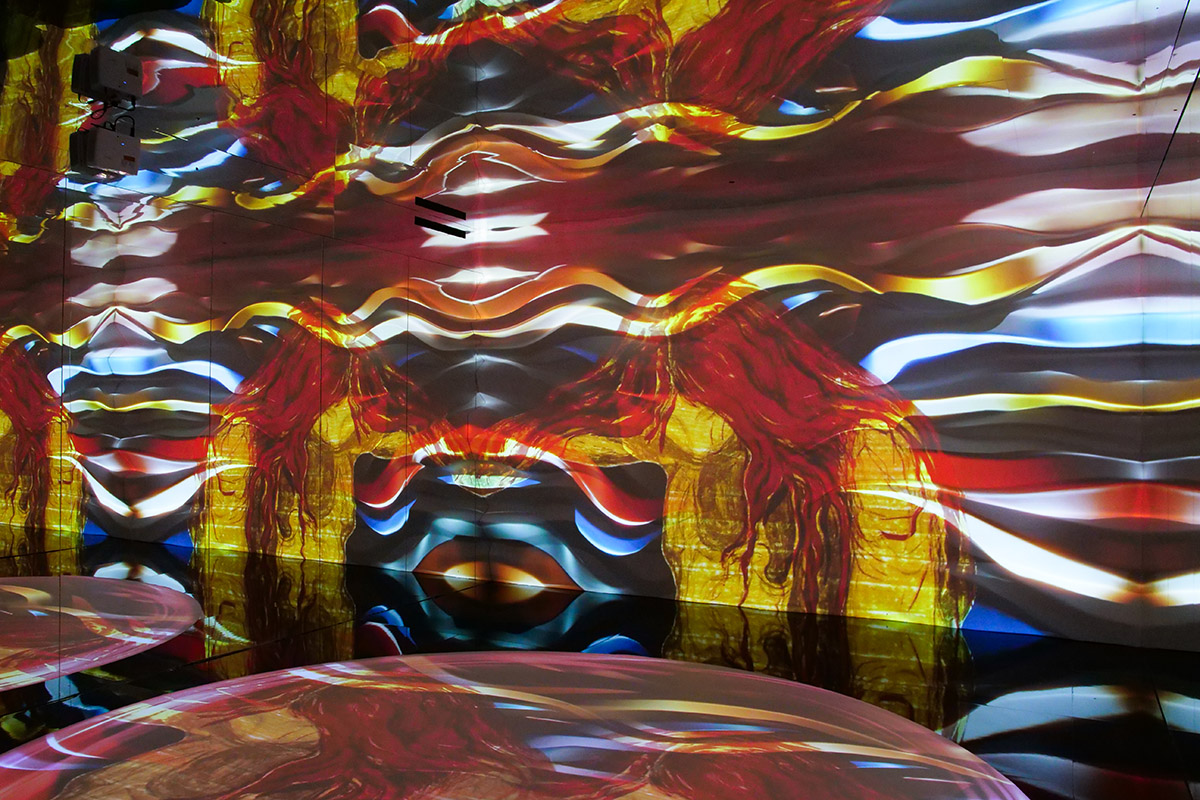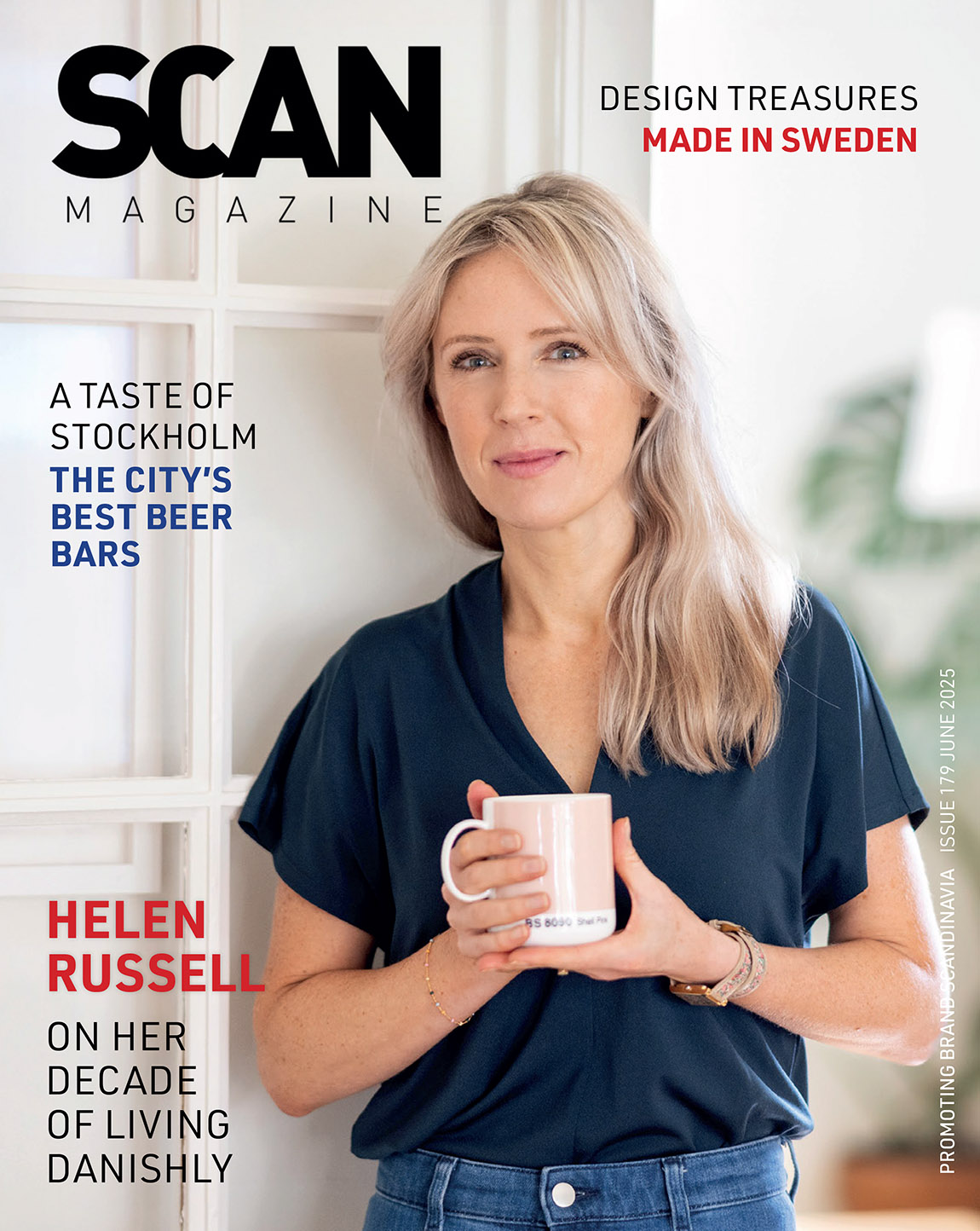Sofia Helin: The actor who has it all
Text: Linnea Dunne | Photos © Carolina Romare

“S ome actors say that their characters don’t change them; I don’t know how they do that,” says Sofia Helin in earnest. She is talking about Saga Norén, her character in the Nordic Noir hit series The Bridge (currently showing on BBC4), who is going through a difficult time in the third series. Scan Magazine spoke to the Swedish actor about the return of Saga, the refugee crisis and making sense of being a public person.
Helin is convinced that playing the homicide detective with Asperger’s Syndrome has rewired her brain and changed her fundamentally. “When you start thinking like somebody else, you change. It’s been a good thing mainly, but this season is really sad, so I ended up navigating a lot of sorrow.”
Already during its second season, the crime drama had more viewers in the UK than its Nordic Noir cousins Borgen and The Killing, and when the third season kicked off last month, the first episode had a record 1.2 million live viewers. The third instalment of the drama sees Saga assigned yet another murder investigation bridging the Öresund, this time without Martin Rohde by her side. “Saga loses her cool completely in this season, which makes it very interesting but also awful in a way,” says Helin. “That Martin is gone actually ended up being quite helpful. It made Saga so sad to begin with, which set the tone for me.”
Human nature
If the first season of The Bridge was dedicated to Martin’s personal demons, it is finally Saga’s turn this time. Among other things we get to meet her mother, with whom she has a complicated relationship, to put it mildly.
This is not the first time Helin has dealt with complex family relationships on screen. In her first ever acting job as part of the hugely popular Swedish ‘90s soap opera, Rederiet, she played Minna, a girl who accused her father of having raped her. Also, in the film Masjävlar, she played Mia, who returns from Stockholm to Dalarna in Sweden to big expectations, questions of familial responsibility and a collision with her mother. This leading role won her a nomination for a Guldbagge, the Swedish equivalent of a BAFTA, in 2005.
Helin herself has a less complicated relationship with her roots. “My relationship with my childhood is good – processed but good,” she laughs. She grew up in Örebro in a family where, as she puts it, acting was far from the done thing. Yet the interest was always there for her. “I always acted, initially just playing,” she says. “It’s an inclination, it’s just who I am: I’ve always been interested in human nature, why we do certain things.” Before starting acting school, Helin enrolled on a university course in, as it is known in Sweden, ‘the history of ideas’, something she insists was far from irrelevant to her future career. “It became crucial. Familiarising with all the big philosophers made me expand my thinking.”
A way to endure
Evidencing a philosophical, bordering on political, streak, Helin recently used the promotional trail to speak up on the current refugee crisis. “Sweden has a population of just over nine million, and we’ve taken 100,000 refugees or more,” she explains. “There are 64 million people, give or take, in the UK. They’re taking 6,000. It’s just not right.” At the time of writing, the Swedish government has just announced significantly stricter regulations but, rather than withdraw her pride, Helin decidedly points to the rest of Europe. “It’s sad that this is happening, but it was a crisis decision. Look at the rest of Europe – they’re not taking their fair share of responsibility. It’s an insanely small issue if you consider the potential impact: if all EU countries were in this together, it’s a one permille population increase to welcome all refugees.”
Recently appointed ambassador for WaterAid, a charity working globally to provide access to safe water and sanitation, Helin describes her dedication as “a way to make sense of being a public person”, a part of the job otherwise seemingly pointless to her. “I see this unjust world and all the suffering – this is a way for me to do my bit. More and more, I guess, my commitment is a way to endure,” she says of her highly sensitive personality type. “My artistic streak, at the same time, is a positive effect of being this kind of person.”
A feminist role model
Sensitive in an entirely different way, the highly autistic Saga Norén is blunt at best, and completely socially impossible at worst. But looking at a BBC Breakfast interview Helin and Bodnia did in 2014, the actor is not just a polar opposite of her character. The BBC interview had not even started when one of the two presenters felt the need to interrupt himself to ask what was going on with all the “pushing and shoving”. Helin pointed at Bodnia with his legs spread out, commenting on how men always ‘manspread’. “I couldn’t stand seeing myself sitting like this,” she said, showing what she meant by crossing her legs and demonstratively taking up less space. “Spread your legs, okay, come on!” she urged the female host, who looked across the set in a panic.
Helin mimicking Saga, or just typical Swedish outspokenness? “I actually shocked myself when I did that on the BBC – I’m normally quite diplomatic,” she says. “I love London, but I always feel exhausted just looking at the women in their uncomfortable clothes and everything. She looked so uptight, I felt completely sapped.” Understandable, perhaps, coming from the woman playing Saga, a character dubbed a feminist role model and one which, surely, would not have been as talked-about had the detective been a man. “No,” Helin says with certainty. “Saga has a lot of traits that we would typically describe as manly. Also, the combination of her personality and my way of shaping her on screen makes for quite an interesting mix.”
‘I have everything’
She apologises as she jumps into a taxi. “Let’s go, Arlanda Airport,” she tells the driver, excusing herself: “I’m doing an interview, that’s why I’m on the phone.” She is off to continue the recording of Berlin – Der Geteilte Himmel (Berlin – The Divided Heaven), a German-British co-production by Oscar-winning Hollywood director Oliver Hirschbiegel. “I’m playing a British-Swedish woman who lives in Berlin, working for the British army, and falls victim for a Romeo agent – a woman who has been betrayed and is working hard to maintain her dignity,” says Helin. “It’s something completely different. I won’t know myself!”
Asked what three wishes she would ask a genie in a bottle, she barely hesitates before composing a list of altruisms. “I would wish for the war in Syria to be over. I would ask for a miracle so that all the children in the world get access to clean water, because 1,400 children die every day because of dirty water, and that’s just appalling. And finally, I’d wish for a genius to come up with a solution so that we could stop destroying our world.” Nice words – but then Helin goes blunt: “I’m not saying it to be nice. I’m being crass,” and it is almost as if Saga emerges for a moment. Helin ends in the same earnest way she started. “I don’t wish for anything else – I have everything: I have two healthy children, a job, a home… I’m not being humble, I’m just so incredibly privileged that it would be arrogant to ask for more.”
Subscribe to Our Newsletter
Receive our monthly newsletter by email





